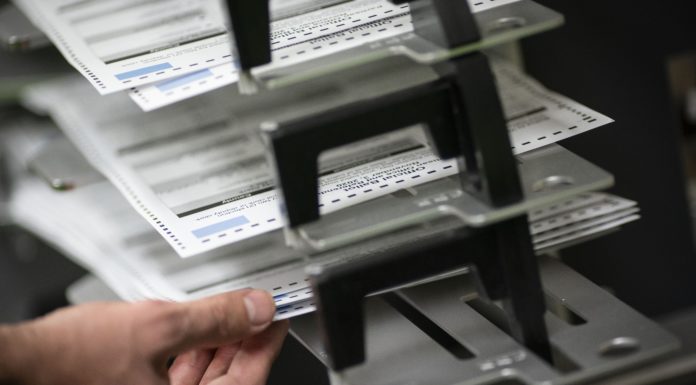(Thérèse Boudreaux, The Center Square) A Wisconsin court is set to rule on whether disabled citizens will be eligible to vote via electronic absentee ballots starting in November.
The case, Disability Rights Wisconsin v. Wisconsin Elections Commission, hinges on whether meaningful access to absentee voting is currently provided for disabled voters, and whether the requested electronic ballot accommodation does not fundamentally alter or impose undue hardship on voting services and their providers.
The WEC has the burden of proving the new accommodation would fundamentally alter or unduly burden the service.
Lawyers for plaintiff stated that under the Americans with Disabilities Act and the Rehabilitation Act, WEC is subject to ensuring that absentee ballot voting is offered on equal terms for all voters. The plaintiff argued the current services provided to disabled voters do not satisfy the requirements for “meaningful access.”
Those services include allowing voters with disabilities in Wisconsin to request an assistant when voting absentee, and audio-marking options for ballots at in-person polls.
“But this accommodation does not allow plaintiffs to read and mark the ballot privately and independently. By doing so, they are not allowed to enjoy the full benefits of the program on equal terms as other voters without disabilities…Requiring a voter with a disability to rely on assistance does not provide them with meaningful access to absentee ballot voting,” a DRW lawyer said.
DRW argued the new accommodations would not fundamentally change or unreasonably burden the state’s election services, as Wisconsin already offers electronic absentee ballots via email to military personnel overseas.
Lawyers for WEC countered both points, saying meaningful access is already provided under both state and federal standards, and the new requirements would be impossible to implement by November.
“This would take three months to implement, and there are only two months left until absentee ballots are sent out for November elections. And this is while clerks are preparing for August primary – they can’t develop, approve and provide training for municipal 2,000 clerks,” a WEC lawyer said.
The accommodation change, she added, would weaken election security and uniformity because it would create a new class of voters that are not as easily identifiable as military personnel–individual clerks would have to decide eligibility.
WEC also pointed out that under SCOTUS case Purcell v. Gonzalez, changes to election procedure are not allowed under such a short timeframe.
Judge Everett Mitchell of the Dane County Circuit Court presided over the hearing and is expected to release a ruling in the next couple of days.

